Social Movements Quotes
Quotes tagged as "social-movements"
Showing 1-30 of 41
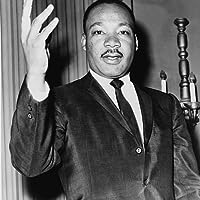
“It may well be that we will have to repent in this generation. Not merely for the vitriolic words and the violent actions of the bad people, but for the appalling silence and indifference of the good people who sit around and say, "Wait on time.”
― A Testament of Hope: The Essential Writings and Speeches
― A Testament of Hope: The Essential Writings and Speeches

“A social movement that only moves people is merely a revolt. A movement that changes both people and institutions is a revolution.”
― Why We Can't Wait
― Why We Can't Wait
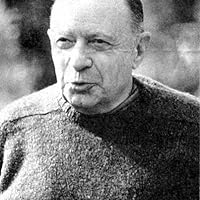
“By thinking globally I can analyze all phenomena, but when it comes to acting, it can only be local and on a grassroots level if it is to be honest, realistic, and authentic.”
― Perspectives on Our Age
― Perspectives on Our Age
“The 1970s-80s social movement called U.S. third world feminism functioned as a central locus of possibility, an insurgent social movement that shattered the construction of any one ideology as the single most correct site where truth can be represented. Indeed, without making this kind of metamove, any 'liberation' or social movement eventually becomes destined to repeat the oppressive authoritarianism from which it is attempting to free itself, and become trapped inside a drive for truth that ends only in producing its own brand of dominations. What U.S. third world feminism thus demanded was a new subjectivity, a political revision that denied any one ideology as the final answer, while instead positing a tactical subjectivity with the capactiy to de- and recenter, given the forms of power to be moved. These dynamics are what were required in the shift from enacting a hegemonic oppositional theory and practice to engaging in the differential form of social movement, as performed by U.S. feminists of color during the post-World War II period of great social transformation. p. 58-59. ”
― Methodology of the Oppressed
― Methodology of the Oppressed
“A critical element in nearly all effective social movements is leadership. For it is through smart, persistent, and authoritative leaders that a movement generates the appropriate concepts and language that captures the frustration, anger, or fear of the group's members and places responsibility where it is warranted.”
― The Hank Adams Reader: An Exemplary Native Activist and the Unleashing of Indigenous Sovereignty
― The Hank Adams Reader: An Exemplary Native Activist and the Unleashing of Indigenous Sovereignty

“Human beings with all their faults and strengths constitute the mechanism of a social movement. They must make mistakes and learn from them, make more mistakes and learn anew. They must taste defeat as well as success, and discover how to live with each. Time and action are the teachers.”
― Why We Can't Wait
― Why We Can't Wait

“We no longer live in a mass-media world with a few centralized choke points with just a few editors in charge, operated by commercial entities and governments. There is a new, radically different mode of information and attention flow: the chaotic world of the digitally networked public sphere (or spheres) where ordinary citizens or activists can generate ideas, document and spread news of events, and respond to mass media. This new sphere, too, has choke points and centralization, but different ones than the past. The networked public sphere has emerged so forcefully and so rapidly that it is easy to forget how new it is. Facebook was started in 2004 and Twitter in 2006. The first iPhone, ushering in the era of the smart, networked phone, was introduced in 2007. The wide extent of digital connectivity might blind us to the power of this transformation. It should not. These dynamics are significant social mechanisms, especially for social movements, since they change the operation of a key resource: attention… Attention is oxygen for movements. Without it, they cannot catch fire.”
― Twitter and Tear Gas: The Power and Fragility of Networked Protest
― Twitter and Tear Gas: The Power and Fragility of Networked Protest

“Resistence can start and happen everywhere and whenever you want.”
― Tindakan-tindakan Kecil Perlawanan: Bagaimana Keberanian, Ketegaran dan Kecerdikan Dapat Mengubah Dunia
― Tindakan-tindakan Kecil Perlawanan: Bagaimana Keberanian, Ketegaran dan Kecerdikan Dapat Mengubah Dunia

“In order to have a happy ending, in order to be triumphant, in order to be heroic, you have to tell your own story. The women's movement knows that; black people know that; brown people know that; yellow people know that. You have to be able to tell your own story in order to show that you are worthy--that you belong.”
― Shimmy Shimmy Shimmy Like My Sister Kate: Looking At The Harlem Renaissance Through Poems
― Shimmy Shimmy Shimmy Like My Sister Kate: Looking At The Harlem Renaissance Through Poems

“We cannot fully create effective movements for social change if individuals struggling for that change are not also self-actualized or working towards that end. When wounded individuals come together in groups to make change our collective struggle it is often undermined by all that has not been dealt with emotionally.”
― Sisters of the Yam: Black Women and Self-Recovery
― Sisters of the Yam: Black Women and Self-Recovery
“The civil rights movement is evolving from a protest movement into a full-fledged social movement--an evolution calling its very name into question. It is now concerned not merely with removing the barriers to full opportunity but with achieving the fact of equality. From sit-ins and Freedom Rides we have gone into rent strikes, boycotts, community organization, and political action. As a consequence of this natural evolution, the Negro today finds himself stymied by obstacles of far greater magnitude than the legal barriers he was attacking before: automation, urban decay, de facto school segregation. These are problems which, while conditioned by Jim Crow, do not vanish upon its demise. They are more deeply rooted in our socioeconomic order; they are the result of the total society's failure to meet not only the Negro's needs but human needs generally.”
― Down the Line: The Collected Writings of Bayard Rustin
― Down the Line: The Collected Writings of Bayard Rustin
“One of the axioms of organizing is that you organize people where they are, and where people are, in much of their lives, is in their communities.”
―
―
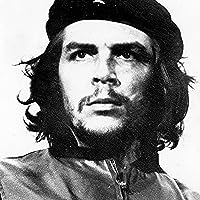
“Without organization, ideas, after some initial momentum, start losing their effect. They become routine, degenerate into conformity, and end up simply a memory. I raise this warning because too often, in this short but rich period of our revolution, many great initiatives have failed. They have been forgotten because of the lack of an organizational apparatus needed to keep them going and bring them to fruition.”
―
―
“In the South, we knew our adversary would stop at nothing to silence our activism. We knew we could never match his readiness to annihilate our resistance. So we ceded him that ground and challenged him instead to defend himself against the work of loving peace.”
― Across That Bridge: A Vision for Change and the Future of America
― Across That Bridge: A Vision for Change and the Future of America
“I think is inherent in humans to be driven by a cause. However, we must be able to differentiate between sensationalism and true facts. Otherwise we risk to sacrifice many things in life for the wrong cause; which may even include our own happiness.”
―
―
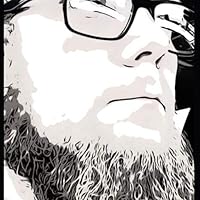
“If you can create a social movement that people want to join, they will bend their energies and ideas to you.”
― The Second Mountain: The Quest for a Moral Life
― The Second Mountain: The Quest for a Moral Life

“Collectively speaking, if we chart the internal mood of every successful movement for social integration we find that, ironically, with each advance made it is anger—not hope, much less elation—that deepens in the petitioners at the gate. Ironic but not surprising: to petition repeatedly is to be reminded repeatedly that one is not wanted, never had been, never will be.”
― The Men in My Life
― The Men in My Life

“In any social revolution there are times when the tail winds of triumph and fulfillment favor us, and other times when strong head winds of disappointment and setbacks beat against us relentlessly. We must not permit adverse winds to overwhelm us as we journey across life’s mighty Atlantic; we must be sustained by our engines of courage in spite of the winds. This refusal to be stopped, this “courage to be,” this determination to go on “in spite of” is the hallmark of any great movement.”
― Where Do We Go from Here: Chaos or Community?
― Where Do We Go from Here: Chaos or Community?

“İsyan yalnızca liderleri ve mahalle konseylerini, sendikaları ve diğer tüm resmi örgütleri bir kenara itmekle kalmadı, aynı zamanda gündelik yaşam biçimleriyle "yönlendirildi" ve gündelik yaşamın içinden çıktı.”
― İktidarı Dağıtmak: Devlet Karşıtı Kuvvetler Olarak Toplumsal Hareketler
― İktidarı Dağıtmak: Devlet Karşıtı Kuvvetler Olarak Toplumsal Hareketler

“Ayrıca, kırda ve kentte yaşayan Aymara toplulukları radyo istasyonlarını ele geçirdiler ve kendi mesajlarını ilettiler, ama her şeyden önemlisi iletişim kurdular, burada iletişimi daha derinlikli bir anlamda kullanıyorum, ruh hallerini, deneyimlerini ve duygularını radyoyu dinleyenlerle paylaştılar. Bu, canlı yayın yapanlara oldukça benzer bir şekilde, oldukça duygusal bir etki yarattı. Böylece, vericiler ve alıcılar arasındaki ayrımı muğlaklaştıran bir bağ oluşturuldu.”
― İktidarı Dağıtmak: Devlet Karşıtı Kuvvetler Olarak Toplumsal Hareketler
― İktidarı Dağıtmak: Devlet Karşıtı Kuvvetler Olarak Toplumsal Hareketler

“... geleneksel anlamda planlanmış bir süreç yoktur, daha önce alınmış derslere dayanan derin bir samimiyete dayalı bir kendiliğindenlik mevcuttur.”
― İktidarı Dağıtmak: Devlet Karşıtı Kuvvetler Olarak Toplumsal Hareketler
― İktidarı Dağıtmak: Devlet Karşıtı Kuvvetler Olarak Toplumsal Hareketler
“Social movements are understood in relations to the openings they instigate in the political constellation of society as well as the closures that inevitably follow such openings.”
― A Guerrilla Odyssey: Modernization, Secularism, Democracy, and Fadai Period of National Liberation in Iran, 1971-1979
― A Guerrilla Odyssey: Modernization, Secularism, Democracy, and Fadai Period of National Liberation in Iran, 1971-1979
“I have always mistrusted the phrase "standing on the shoulders of giants," because although I respect and pay homage to the brilliance and resilience of my ancestors, I'm fairly certain that they were not giants, but as powerful and as vulnerable as I am.”
―
―
“The story of white power as a social movement exposes something broader about the enduring impact of state violence in America. It reveals one catastrophic ricochet of the Vietnam War, in the form of its paramilitary aftermath. It also reveals something important about war itself. War is not neatly contained in the space and time legitimated by the state. It reverberates in other terrains and lasts long past armistice. It comes home in ways bloody and unexpected.”
― Bring the War Home: The White Power Movement and Paramilitary America
― Bring the War Home: The White Power Movement and Paramilitary America
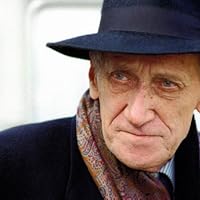
“There is a abundant evidence that all social movements are to be explained by a variety of circumstances and that the ideological sources to which they appeal, and to which they seek to remain faithful, are only one of the factors determining the form they assume and their patterns of thought and action.”
― Main Currents Of Marxism: The Founders, The Golden Age, The Breakdown
― Main Currents Of Marxism: The Founders, The Golden Age, The Breakdown

“Digging in the dirt and shoveling manure in the corral is not going to strip off the layers of armor the first day or the second day or even the twelfth. But over time, they're part of something that they start from scratch and see through to the end. How often have they had the chance to do that? To feel like they created something? Especially something that could help keep another human being alive?”
― Grace from the Garden: Changing the World One Garden at a Time
― Grace from the Garden: Changing the World One Garden at a Time

“Phillip. the Dream Defenders founder, had a similar insight. For him, the experience of the Blackout had been a lesson in the varieties of power. Borrowing a concept from Joseph Nye, the political scientist, he now came to understand social media as a form of 'soft power,' a force that shapes culture through argument and story. But there was also 'hard power,' which Nye, in assessing the capacity of different nation-states, characterized as military and economic might. For movements, hard power was the ability to lobby for legislation, elect sympathetic political leaders, get resources allocated toward your cause. Social media, Phillip now saw more clearly, was good at building soft power. But when it came to hard power, it could do very little. And if for Nye every successful state needed a mix of the two, this was doubly true of social movements, which didn't stare with a store of either.
The only way to built hard power was on the ground. As Rachel put it, 'You just can't shortcut organizing.' It made them want to stop the performance, the race for followers, even the reflex to always make their actions public-they would think carefully about if and when to use tactics like occupations and sit-ins.”
― The Quiet Before: On the Unexpected Origins of Radical Ideas
The only way to built hard power was on the ground. As Rachel put it, 'You just can't shortcut organizing.' It made them want to stop the performance, the race for followers, even the reflex to always make their actions public-they would think carefully about if and when to use tactics like occupations and sit-ins.”
― The Quiet Before: On the Unexpected Origins of Radical Ideas

“The seven core members also became more involved in local Minneapolis politics. Drawing attention at a national level had been the driving impetus of the earlier Black Lives Matter protests, which had relied on getting that hashtag to spike. Now it was clear that if their focal point was police funding, it would need to be a local effort, dependent on a partnership with the city council and the mayor's office, where these budgetary decisions were made. They would need to learn the mechanics and make some allies.
This was organizing as it had long been done, and they got good at it. It was also, in a way, what separated Minneapolis from Cairo. Whereas the Middle East lacked a democratic or grassroots political tradition-and had no way to even imagining how to create one-this wasn't the case in America....But there was a long history of African American organizing that predated Silicon Galley. Miski and their friends got to know city council members and their aides, inundated them with research material, visited their offices, and maybe most important, brought people out to hearings when the budget was being discussed, arguing in forum after forum against the belief that all the police needed were a few more bodycams. All this happened without much fanfare and largely off-line.”
― The Quiet Before: On the Unexpected Origins of Radical Ideas
This was organizing as it had long been done, and they got good at it. It was also, in a way, what separated Minneapolis from Cairo. Whereas the Middle East lacked a democratic or grassroots political tradition-and had no way to even imagining how to create one-this wasn't the case in America....But there was a long history of African American organizing that predated Silicon Galley. Miski and their friends got to know city council members and their aides, inundated them with research material, visited their offices, and maybe most important, brought people out to hearings when the budget was being discussed, arguing in forum after forum against the belief that all the police needed were a few more bodycams. All this happened without much fanfare and largely off-line.”
― The Quiet Before: On the Unexpected Origins of Radical Ideas
All Quotes
|
My Quotes
|
Add A Quote
Browse By Tag
- Love Quotes 97.5k
- Life Quotes 76k
- Inspirational Quotes 73k
- Humor Quotes 43.5k
- Philosophy Quotes 29.5k
- Inspirational Quotes Quotes 27k
- God Quotes 26k
- Truth Quotes 23.5k
- Wisdom Quotes 23.5k
- Romance Quotes 23k
- Poetry Quotes 22k
- Death Quotes 20k
- Happiness Quotes 18.5k
- Life Lessons Quotes 18.5k
- Hope Quotes 18k
- Faith Quotes 18k
- Quotes Quotes 16.5k
- Inspiration Quotes 16.5k
- Spirituality Quotes 15k
- Religion Quotes 15k
- Motivational Quotes 15k
- Writing Quotes 15k
- Relationships Quotes 14.5k
- Life Quotes Quotes 14k
- Love Quotes Quotes 14k
- Success Quotes 13.5k
- Time Quotes 12.5k
- Motivation Quotes 12k
- Science Quotes 11.5k
- Motivational Quotes Quotes 11.5k


